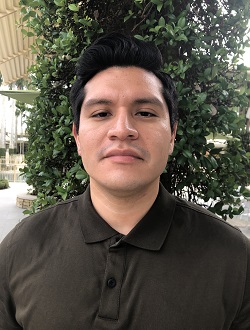As we honor veterans who have selflessly served this Veterans Day, it’s crucial to recognize and support the mental health needs of these brave individuals. Veterans often face unique challenges, such as managing the impacts of trauma, transitioning to civilian life, and coping with physical and psychological injuries. While traditional therapy is essential, mindfulness practices are proving to be powerful tools that offer veterans new ways to enhance their mental well-being. Let’s dive into how mindfulness can make a difference for veterans and explore some effective ways to support their mental health.
Understanding Veteran Mental Health
Veterans often experience conditions like PTSD, depression, and anxiety at higher rates due to the demanding and high-stress nature of military service. The journey back to civilian life can also be complicated by feelings of isolation, identity loss, and difficulty adjusting to non-military environments. Given these challenges, it’s essential that veterans are supported with strategies and practices that promote holistic well-being. This is where mindfulness steps in as a meaningful, accessible way to enhance mental health and emotional resilience.
How Mindfulness Benefits Veterans
Mindfulness, the practice of staying present in the moment without judgment, has shown remarkable benefits for those dealing with trauma and stress-related conditions. For veterans, the power of mindfulness lies in its ability to provide a sense of control, stability, and calm in their daily lives.
Reducing PTSD Symptoms: Mindfulness techniques help veterans manage symptoms like flashbacks, anxiety, and hypervigilance. Through mindfulness, veterans learn to ground themselves in the present, allowing them to better recognize and control trauma-related responses.
Managing Stress and Anxiety: Mindfulness practices reduce stress by promoting relaxation, deep breathing, and a focus on the present rather than dwelling on past traumas or worrying about the future. This helps veterans develop healthier coping mechanisms for everyday stressors.
Improving Focus and Self-Control: Military experiences can leave veterans feeling hyper-aware or hyper-reactive, which can affect their personal lives and relationships. Mindfulness encourages focus and awareness, aiding veterans in reclaiming control over their thoughts and emotions.
Enhancing Sleep Quality: Veterans often struggle with sleep due to anxiety and hyperarousal. Mindfulness techniques, such as mindful breathing and progressive muscle relaxation, help them wind down, improving both the quantity and quality of their rest.
Life Improvements from Mindfulness
Integrating mindfulness into their lives can offer veterans a pathway to improved mental health and overall quality of life. Here are some of the key benefits:
- Greater Emotional Resilience: Mindfulness encourages veterans to acknowledge their emotions without judgment, promoting resilience by teaching them to handle difficult feelings constructively.
- Enhanced Physical Health: Mental health impacts physical health, and mindfulness has been linked to improvements in blood pressure, heart rate, and pain management—all issues veterans may face after their service.
- Stronger Social Connections: Many veterans report feeling isolated after leaving the military. Practicing mindfulness can help them connect better with friends, family, and support groups by improving communication skills and emotional availability.
- Sense of Purpose: Mindfulness encourages self-reflection, helping veterans redefine their purpose and identity outside of the military. This can be crucial for mental health, as a strong sense of purpose is linked to greater life satisfaction and decreased risk of depression.
Mindfulness Practices for Veterans
Each of these practices can be adapted to fit individual needs and comfort levels. By regularly practicing mindfulness, veterans can gradually build up emotional resilience, manage stress, and foster a stronger connection to the present moment.
Deep Breathing Exercises
How to Practice: Take a few minutes to focus on your breathing, taking slow, deep breaths. Breathe in through your nose for a count of four, hold for a count of four, and exhale through your mouth for a count of six. This exercise calms the nervous system and can reduce anxiety in moments of stress.
Body Scan Meditation
How to Practice: Begin by lying down or sitting comfortably. Close your eyes and focus on each part of your body from head to toe, noticing any tension and letting it go. This practice promotes relaxation and can be helpful in easing physical pain and releasing stress.
Mindful Walking
How to Practice: As you walk, pay close attention to each step, the feeling of your feet on the ground, and the sensation of movement. Notice your surroundings without judgment, taking in sounds, sights, and smells. Mindful walking can be practiced anywhere and is a great way to find calm and focus in any environment.
Progressive Muscle Relaxation
How to Practice: Start by tensing and then releasing each muscle group in the body, moving from your toes to your head. Breathe deeply and focus on the sensation of relaxation as you let each muscle relax. This technique helps veterans release physical tension and is often useful for managing PTSD-related symptoms.
Guided Visualization
How to Practice: Find a quiet place and imagine a safe, calming scene (like a beach, forest, or other peaceful setting). Visualize this space as vividly as possible, engaging all senses—sight, sound, touch, smell, and taste. Guided visualization can bring feelings of comfort and security, offering a mental “escape” in moments of stress.
Loving-Kindness Meditation
How to Practice: Sit quietly and bring to mind someone you care about, then silently send them wishes for peace, health, and happiness. Next, direct these same wishes toward yourself. This practice helps foster compassion and self-acceptance, which can be particularly helpful for veterans adjusting to civilian life.
Journaling
How to Practice: Take 5-10 minutes each day to write down thoughts, feelings, or observations. Focus on the present moment, reflecting on your experiences without judgment. Journaling can help veterans process emotions, gain perspective, and identify positive aspects of their lives.
How to Support Veterans’ Mental Health through Mindfulness
There are many ways to support veterans’ mental health through mindfulness, whether you’re a family member, friend, mental health professional, or veteran yourself.
Encourage Mindfulness-Based Therapy Programs: Many veterans’ organizations and counseling centers offer mindfulness-based stress reduction (MBSR) and mindfulness-based cognitive therapy (MBCT) specifically designed for those dealing with PTSD and other mental health issues.
Incorporate Daily Mindfulness Practices: Veterans can be encouraged to start small by incorporating simple mindfulness practices, like deep breathing exercises, progressive muscle relaxation, or guided meditation, into their daily routines.
Connect with Veteran-Specific Mindfulness Apps and Resources: Apps like Headspace, Calm, and Insight Timer offer free resources for veterans. Many of these apps have dedicated sections for PTSD, anxiety, and sleep management, all areas where mindfulness is helpful.
Join Veteran Support Groups that Use Mindfulness: Many veterans’ support groups incorporate mindfulness techniques, such as group meditation and mindfulness discussion. These groups offer a safe space for veterans to share their experiences and build community.
Encourage Physical Mindfulness Practices: Yoga, tai chi, and mindful walking can be very effective for veterans who may find sitting meditation challenging. These activities encourage a connection between body and mind, fostering relaxation and emotional release.
The Importance of Veterans Taking Care of Their Mental Health
Taking proactive steps to maintain mental health is as vital as physical health, especially for veterans. Addressing mental health can often be overlooked or even stigmatized, but it’s essential for long-term well-being. By incorporating mindfulness, veterans can build a toolkit of
coping mechanisms, learn to respond to stress constructively, and feel empowered in their healing journey. Encouraging veterans to engage in self-care practices like mindfulness also helps break down the barriers of stigma, reminding them that mental health care is a sign of strength, not weakness.
Supporting Veterans in Your Life
Supporting veterans’ mental health is a community effort, and mindfulness can play a significant role in helping veterans manage the challenges they face. By encouraging veterans to integrate mindfulness practices into their lives, we offer them a pathway to reclaim a sense of peace, purpose, and resilience. Whether you’re a loved one, a mental health professional, or a veteran yourself, promoting mindfulness as a part of veterans’ self-care is a powerful way to show appreciation for their service and support their ongoing well-being.

![[11.11] #MM46 Veterans Day BLOG](https://swflcounsel.com/wp-content/uploads/2024/11/11.11-MM46-Veterans-Day-BLOG.jpg)







